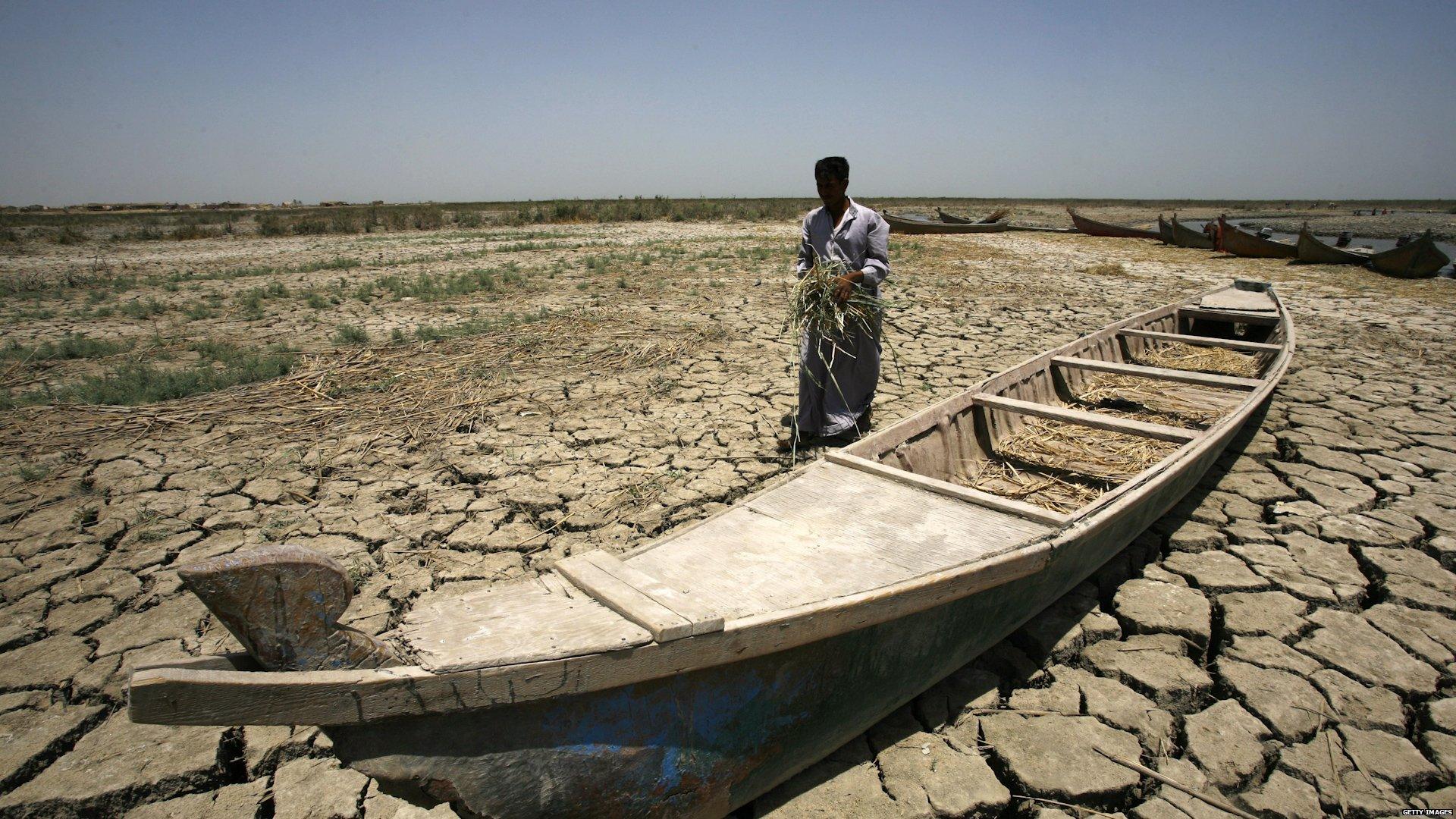Syria's civilians living a 'life worse than death'
- Published
- comments
Daily life in Syria is 'worse than death', say people in Kisweh, on the outskirts of Damascus
Every year, Syria's crisis demands more of the world's aid than the last.
Every year, this crisis demands more of Syrians than the last.
"Every day is worse than yesterday," Abu Mohammed tells me as we sit in a damp room in a basement that's been home for him and his wife and seven children for the past two-and-a-half years.
"I wish it was last month because it was better then."
A deep crack runs across dingy yellow walls, the thin mattresses covering a concrete floor are torn.
Even cheap plastic bowls are cracked and held together by stitches.
Abu Mohammad's semblance of a life has also been steadily falling apart. He's fled this war three times.
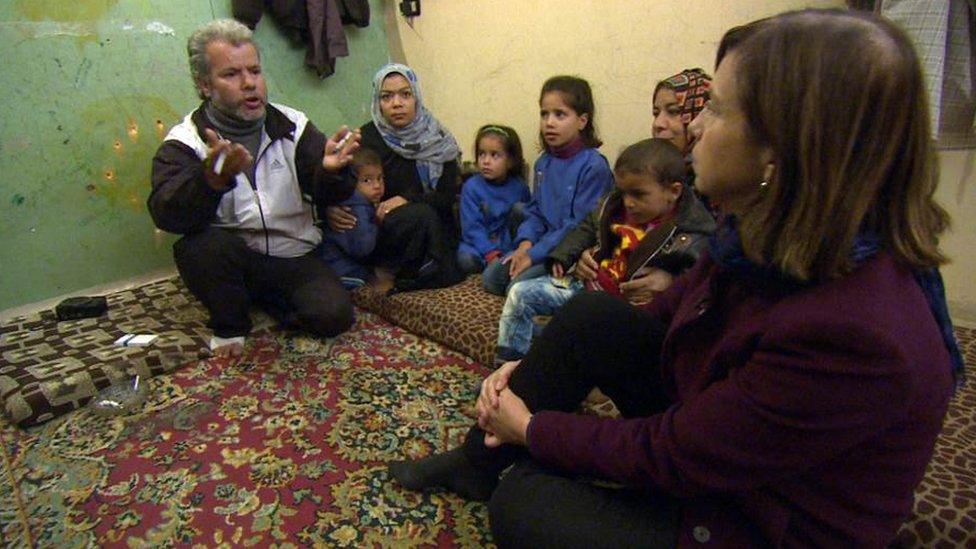
Abu Mohammed (left) lives in a basement with his wife and seven children (Photo: Wietske Burema)
'Humanitarian test'
His current refuge is now a building made of breeze blocks that shelters more than 200 people in the city of Kisweh, just eight miles (13km) south of Damascus.
There are thousands of other displaced families. Kisweh's population has more than quadrupled in recent years.
And since August, there's been some quiet here because of a local ceasefire in what is a deeply-contested area.
We move across Kisweh, through neighbourhoods controlled by the government and in and out of opposition areas, with a Unicef team.
The UN's Agency for Children takes the lead on water and education in the UN's response to what it has long described as "the humanitarian test of our time".
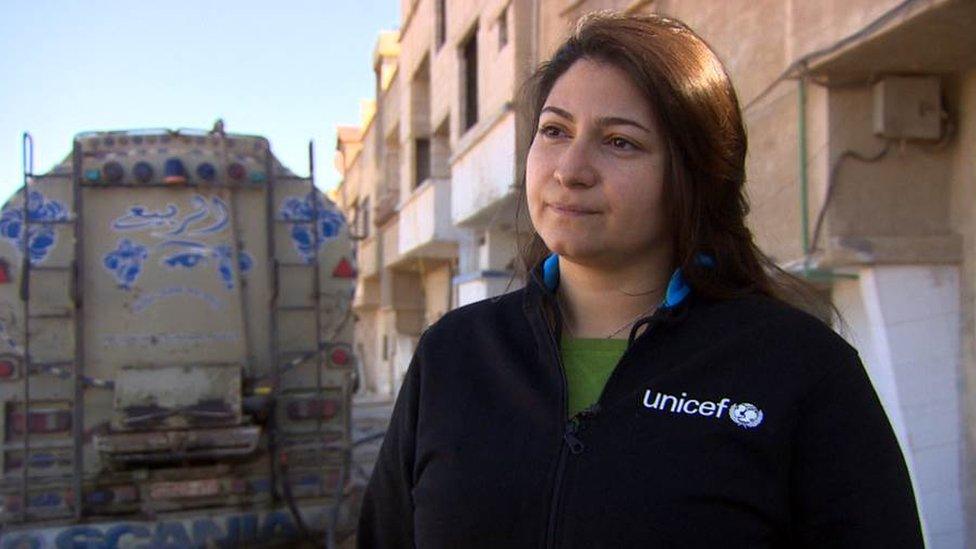
Unicef warns that Syria's needs are becoming "bigger and bigger" (Photo: Wietske Burema)
Like other UN agencies, it's asking for a record sum of money in this year's Humanitarian Response Plan (HRP) being announced in Geneva.
"The needs are becoming bigger and bigger and it's very difficult to visualise it for the rest of the world," remarks Razan Rashidi, Unicef's communication officer in Syria who's travelling with us.
"It's even difficult for Syrians to understand the scale of destruction."
Look at the drawn faces, as grey as the concrete buildings all around them, and you start to understand.
Water as a weapon
"This life is worse than death," laments 79-year-old Ahmad al Ahmad who hobbles out of his grim block of a home to join his wife Fatima, who steadies herself with a cane outside their door.
Some of their more than 20 grandchildren, all with round drooping eyes, silently stare as their street fills with the rumble of a tanker delivering water provided by the UN through a local contractor.
"You can't imagine how much people suffer without water," reflects Atef Dieb, Unicef's water and sanitation officer.
"Sadly, water has been used as a weapon of war in this conflict."
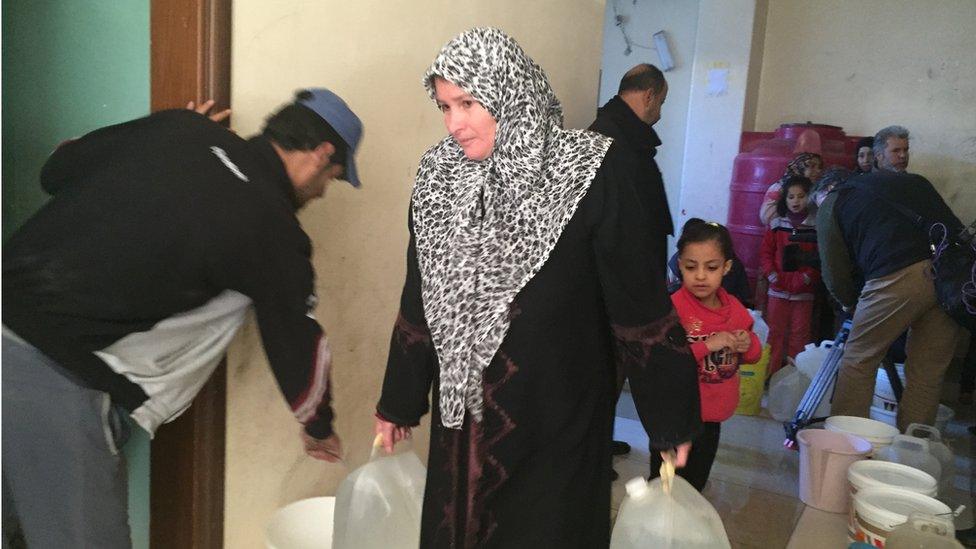
Residents of Kisweh have been forced to live without running water (Photo: Wietske Burema)
Across Syria, over many years, all sides in a brutal war have cut off water and food supplies to gain advantage on the battlefield.
Poor infrastructure means there's no running water in this neighbourhood of Kisweh. Tankers inch their way down narrow alleys only every eight days.
"This is the only source of water we have, and it's not enough," a neighbour chimes in. "We spend many days waiting."
And water is only one of a multitude of problems.
'Cut off from aid'
"Fuel is expensive and so is food," Fatima moans. "I'm sick and can barely walk and my husband Ahmad is sick too."
A few streets away, there's a glimmer of cheer.
"One, two, three, four", children sing in Arabic as they jump and clap in the schoolyard to keep themselves warm.
There are no heaters inside but the children's laughter brightens the day.
Like schools all across Syria, class numbers have doubled, swollen by millions forced to flee their homes by fighting. So there are morning and afternoon shifts.
In a conflict soon reaching its fifth year, some five thousand schools are no longer functioning - they've been attacked, are being used as military bases, or are out of reach close to front lines.
That means hundreds of thousands of people cannot be reached by any aid at all.
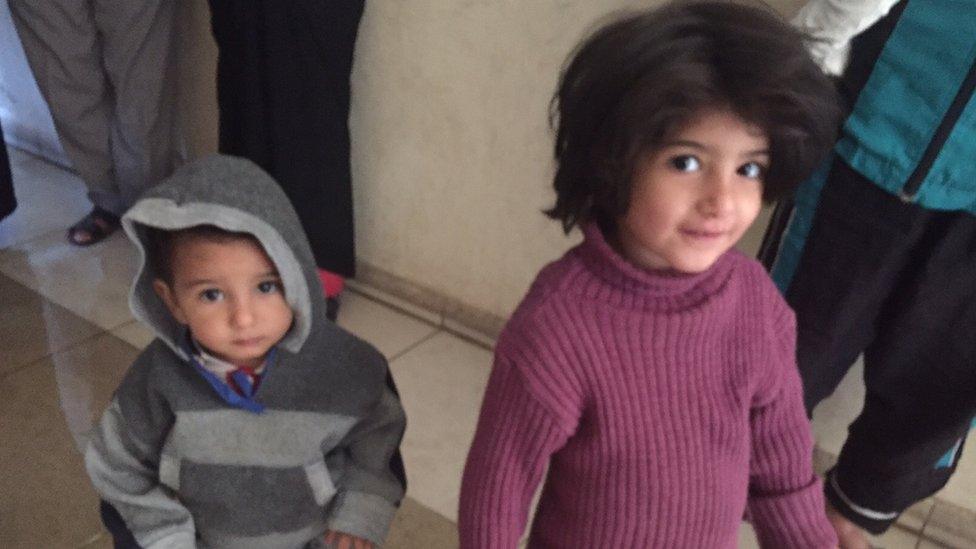
Thousands of schools have been closed due to fighting (Photo: Wietske Burema)
At a World Food Programme warehouse in Damascus, a tent is piled high with sacks of rice, and boxes of basic needs like sugar, rice, beans and cooking oil.
"A third of the population needs food aid and there are many many inaccessible areas, especially the areas controlled by Isis [so-called Islamic State]," says Essam Ismail, who heads the WFP's Emergency Section.
Even besieged neighbourhoods around Damascus are cut off from aid.
It's dire conditions like this, and far worse, that have forced millions to become refugees, including the many thousands who've made the risky journey this year across the Mediterranean Sea to reach Europe's shores.
"If l had money, I would travel too," Abu Mohammed tells me after he's filled up a bucket of water from a tanker that pulls up to his shelter in Kisweh.
"If you are poor outside your country you are a refugee, but inside the country in this kind of a situation we also feel like refugees."
- Published7 December 2015
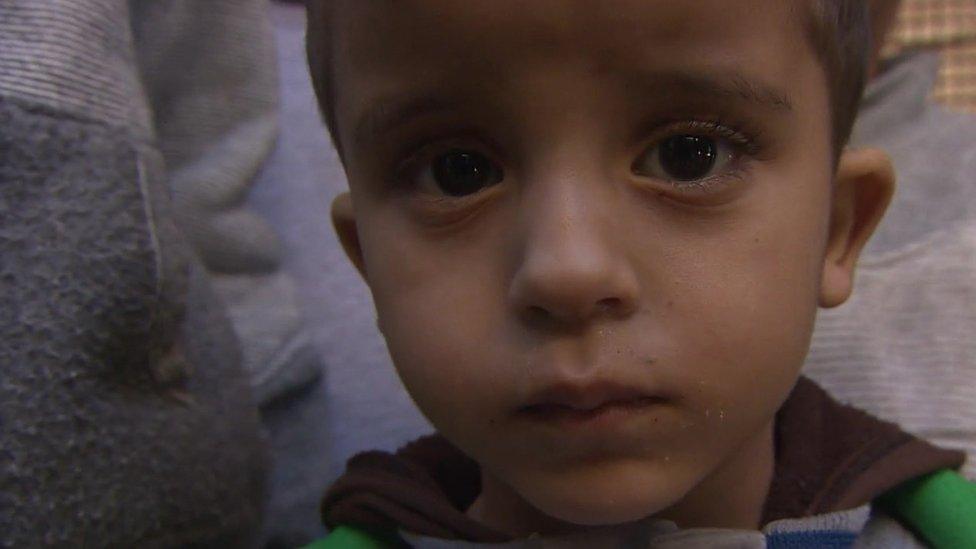
- Published2 December 2015
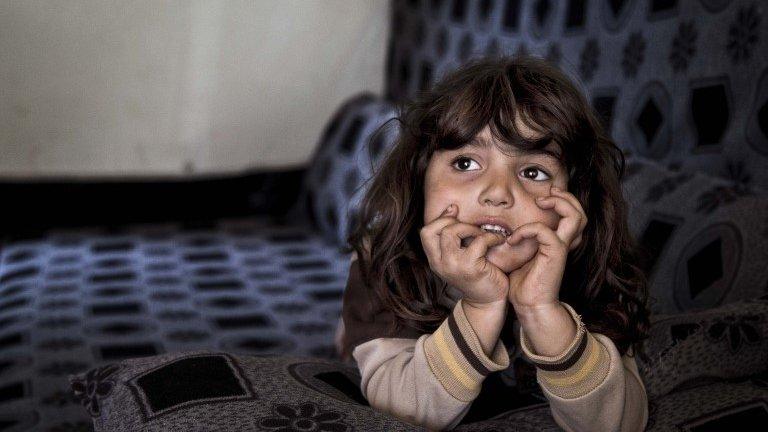
- Published27 November 2015
